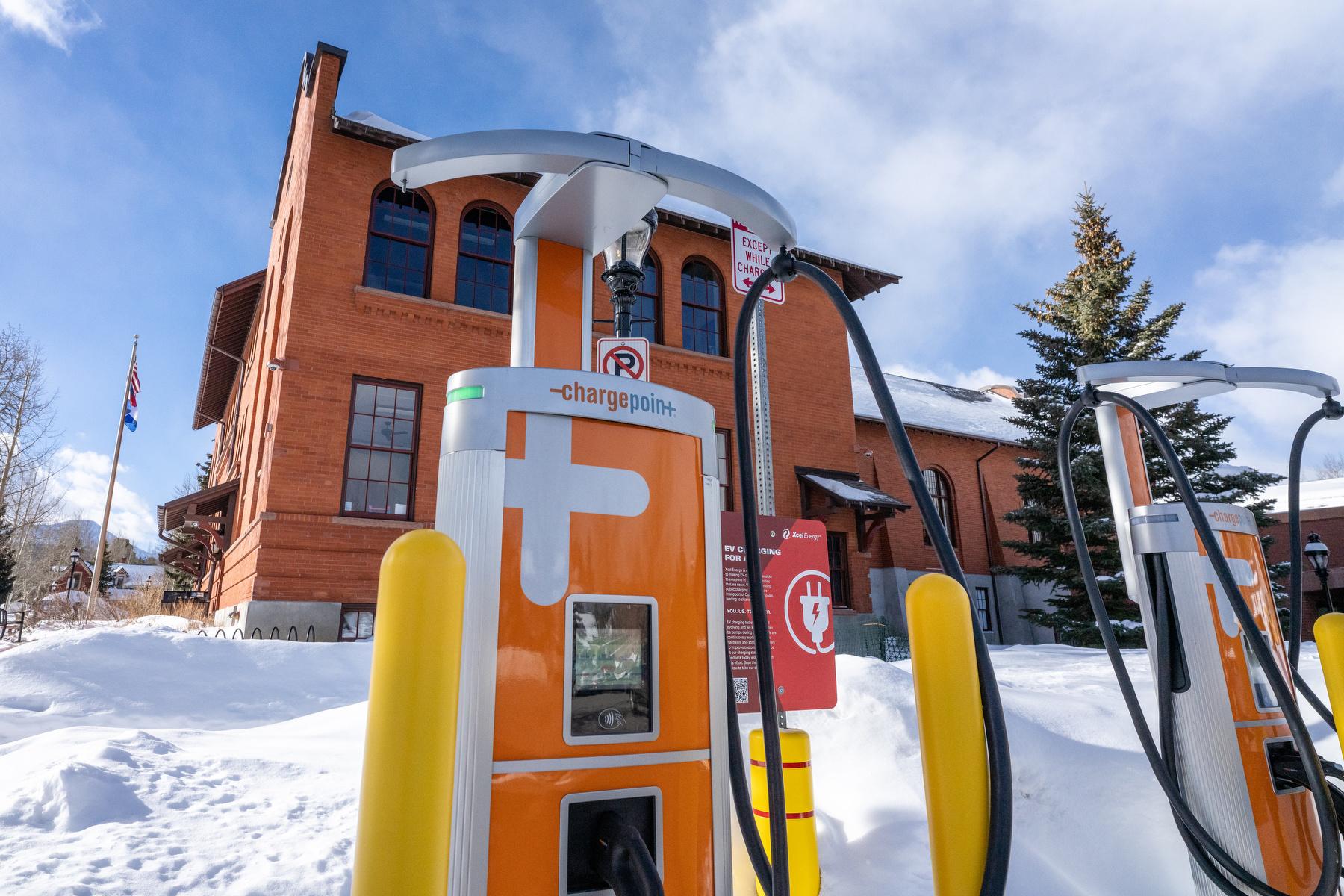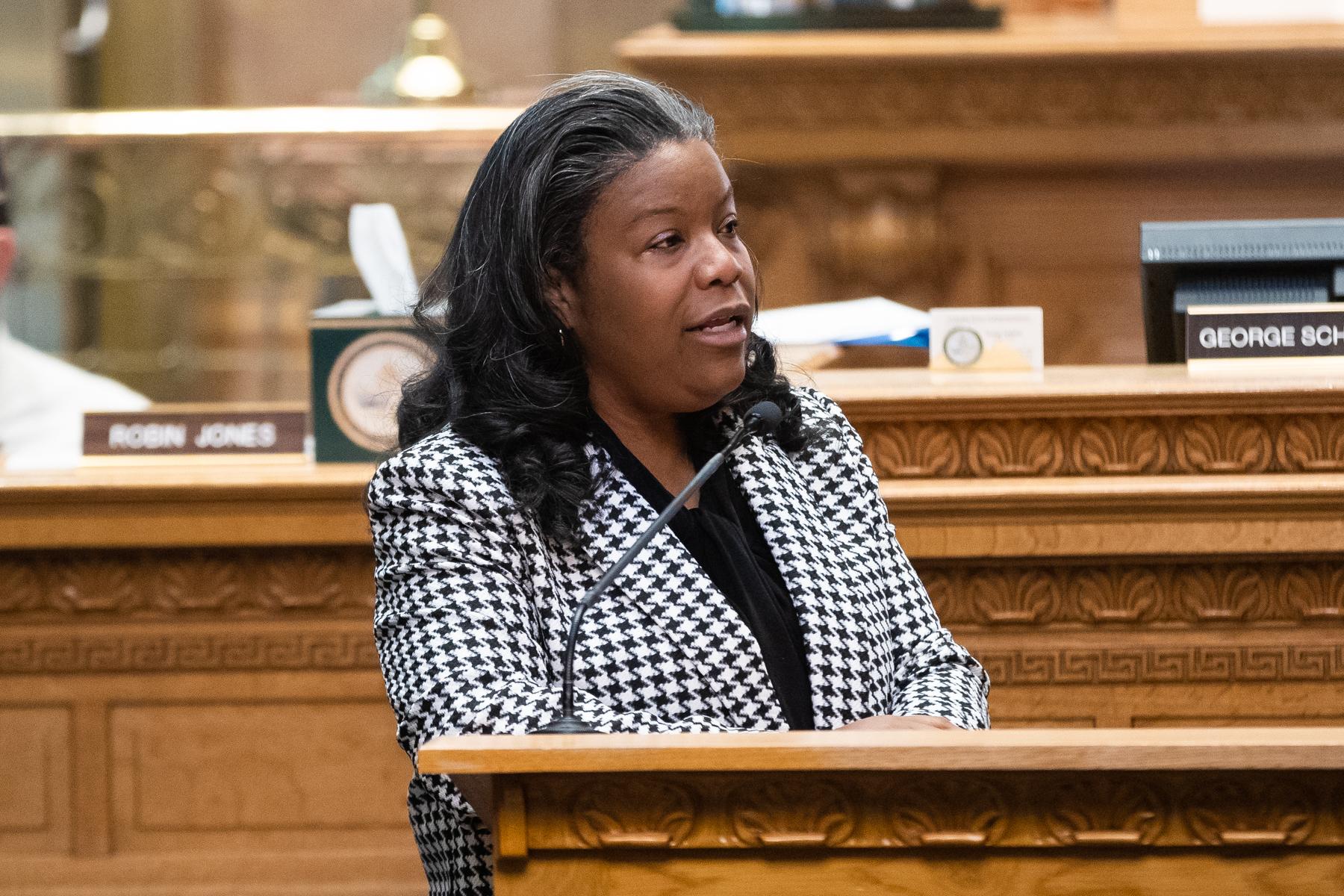
It’s official: some Colorado residents could now qualify for up to $26,500 in discounts on a new electric vehicle.
The updated calculus comes after state utility regulators gave initial approval to Xcel Energy’s newest plan to encourage EV adoption. The package reauthorizes a program offering the utility’s low-income customers a $5,500 rebate on new electric cars with a major modification: it’s now possible to combine the benefits with Colorado’s EV tax credit.
The tweak further cements Colorado as one of the best states to buy an EV. A new Nissan Leaf, for example, could sell for as little as $5,390 — if a buyer combines the utility incentive with other state and federal discounts. A high-end model like a Tesla Model Y could roll off the lot for around $20,900 with the combined discounts.
Xcel Energy, Colorado’s largest electricity provider, has spent months working to convince the regulators to approve its new three-year EV plan. An initial $440 million proposal submitted last year asked for permission to spend $145 million in ratepayer funds to build nearly 500 public chargers. The utility dropped that piece of the proposal after running into pushback from consumer advocates and convenience stores planning to build their own vehicle plugs. It will instead offer rebates to other companies building public chargers.
The final plan, approved by the Colorado Public Utilities Commission on April 10, cut the full price tag to $264 million. While the consumer rebates represent a small portion of the overall plan, allowing customers to combine discounts could help make battery-powered cars far more accessible to low-income Colorado residents.
Why Colorado has a mountain of EV discounts
Colorado is betting big on EVs to clean up its transportation system, which currently ranks as the state’s largest source of climate-warming pollution and the main reason it will likely miss its 2025 and 2030 emissions targets.
A range of programs is now in place to encourage residents to ditch their gas-powered vehicles in favor of an electric alternative. Colorado offers all residents a $5,000 tax credit on electric and plug-in hybrid models. An additional $2,500 is available for cars with a selling price under $35,000. A separate state program offers a $6,000 rebate to help low-income residents replace an old or high-emitting vehicle with an electric alternative.
It’s also easier to take full advantage of the federal $7,500 EV tax credit. At the start of the year, the IRS allowed car buyers to claim the incentive as a point-of-sale discount at participating car dealerships. Any individual with an annual income under $150,000 qualifies. It’s worth noting, however, that only some vehicles qualify for the full discount due to manufacturing requirements, while others only qualify for half of the total tax credit.
Early evidence suggests the flood of incentives is helping spur EV demand. The Colorado Automobile Dealers Association reports that battery-electric vehicles and plug-in hybrids accounted for 16 percent of all new car sales in 2023, up from 10.5 percent a year earlier. The progress has helped make Colorado a top-ten state for EV adoption, according to a Bloomberg analysis published last year.
Colorado nevertheless remains far from Gov. Jared Polis’s goal of putting 940,000 plug-in vehicles on the road by 2030. To reach the target, an updated state EV plan released last year calls for the total market share to surpass 25 percent by 2025.

A wonky battle over EV equity
In arguments before utility regulators, Xcel Energy claimed the company could help nudge the state closer to those targets by offering additional rebates to far more of its customers.
Those proposed programs won support from climate advocates and environmental justice groups, but consumer advocates claimed the plan risked forcing ratepayers to subsidize unnecessary discounts for wealthier car buyers.
In response, the final decision from state utility regulators scrapped the utility’s proposal for far more widely accessible EV rebates, noting those plans “may result in additional subsidies to individuals that may not need them.” It also nixed additional plans worth $9.8 million to help governments and rental car companies buy EVs.
Their final decision reauthorized an existing low-income rebate program, which is available to Xcel Energy customers earning less than 60 percent of Colorado’s median income or 80 percent of their county’s area median income. The discounts will continue to offer $5,500 off the purchase or lease of a new EV or $3,000 for a used EV. Commissioners approved a $5.3 million budget for the program.
It also settles whether Xcel Energy customers could stack the rebates with Colorado’s EV tax credit. In 2021, the commission blocked anyone from combining the incentives, noting regulators needed more time to understand “potential interactions” between the two benefits.
The decision later came to the attention of the state legislature, which addressed the issue in a 2023 law reauthorizing the state EV tax credit and increasing its value to $5,000 for a new vehicle. A provision buried in the policy explicitly allowed Colorado residents to combine the state tax benefit with any EV incentives offered by their local utility company.
The law’s passage confused potential car buyers, who later wrote to CPR News asking for clarification. Following the approval of the new EV plan, Xcel Energy and the Colorado Energy Office have since confirmed that residents can combine the income-qualified utility rebate and the state tax credit.
“We are always excited about opportunities for Coloradans to save money, and we encourage those looking to purchase an EV to take advantage of all the incentives that are available to them,” said Ari Rosenblum, a spokesperson for the Colorado Energy Office.









